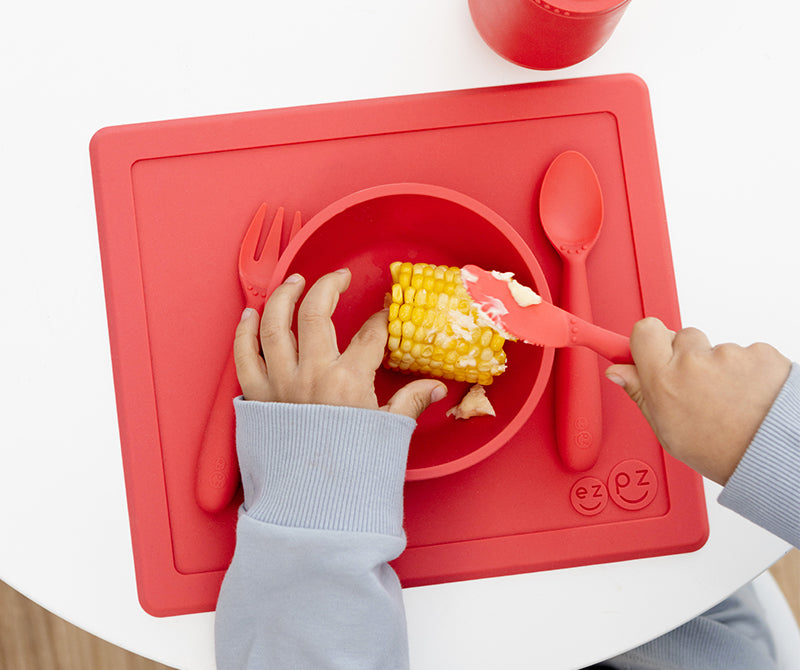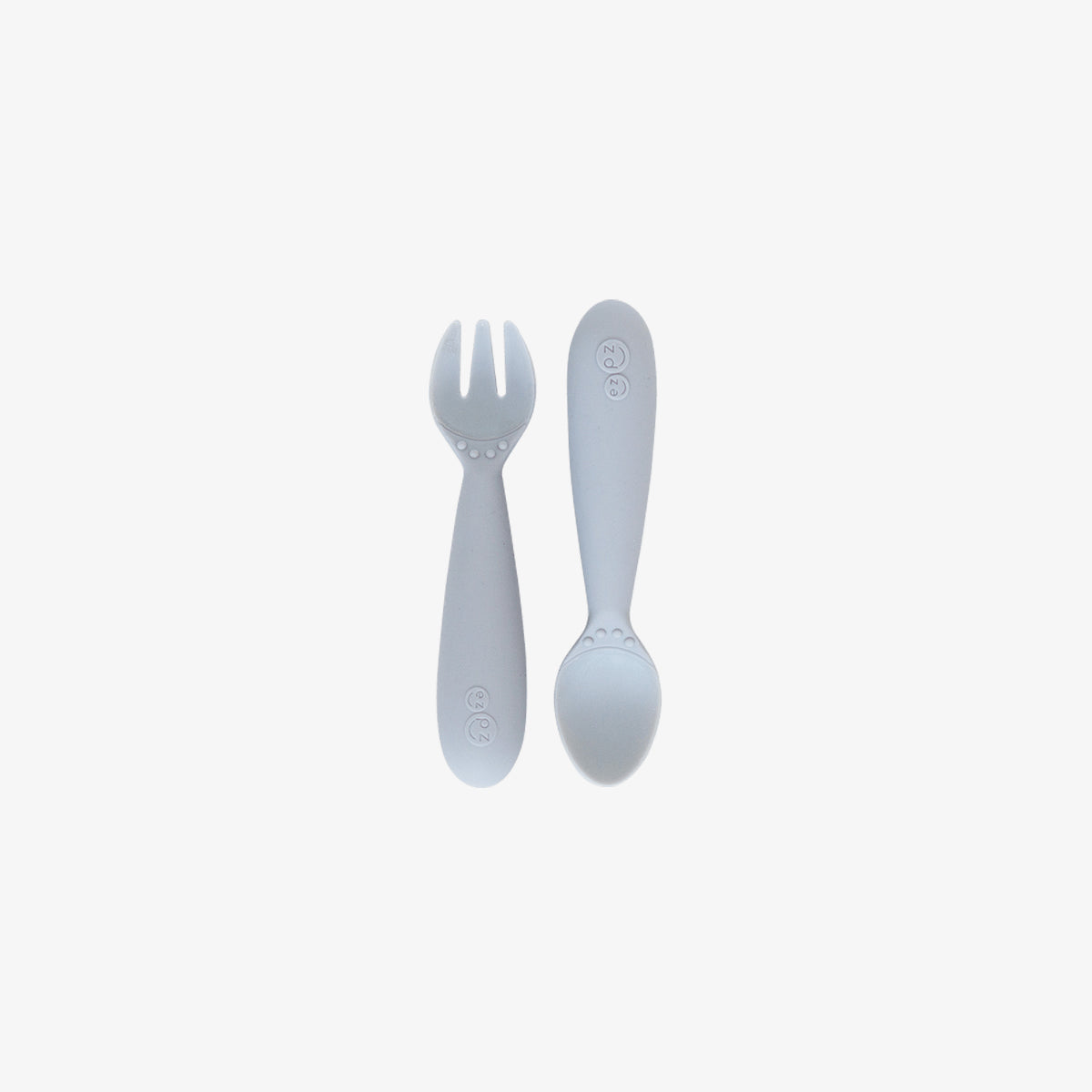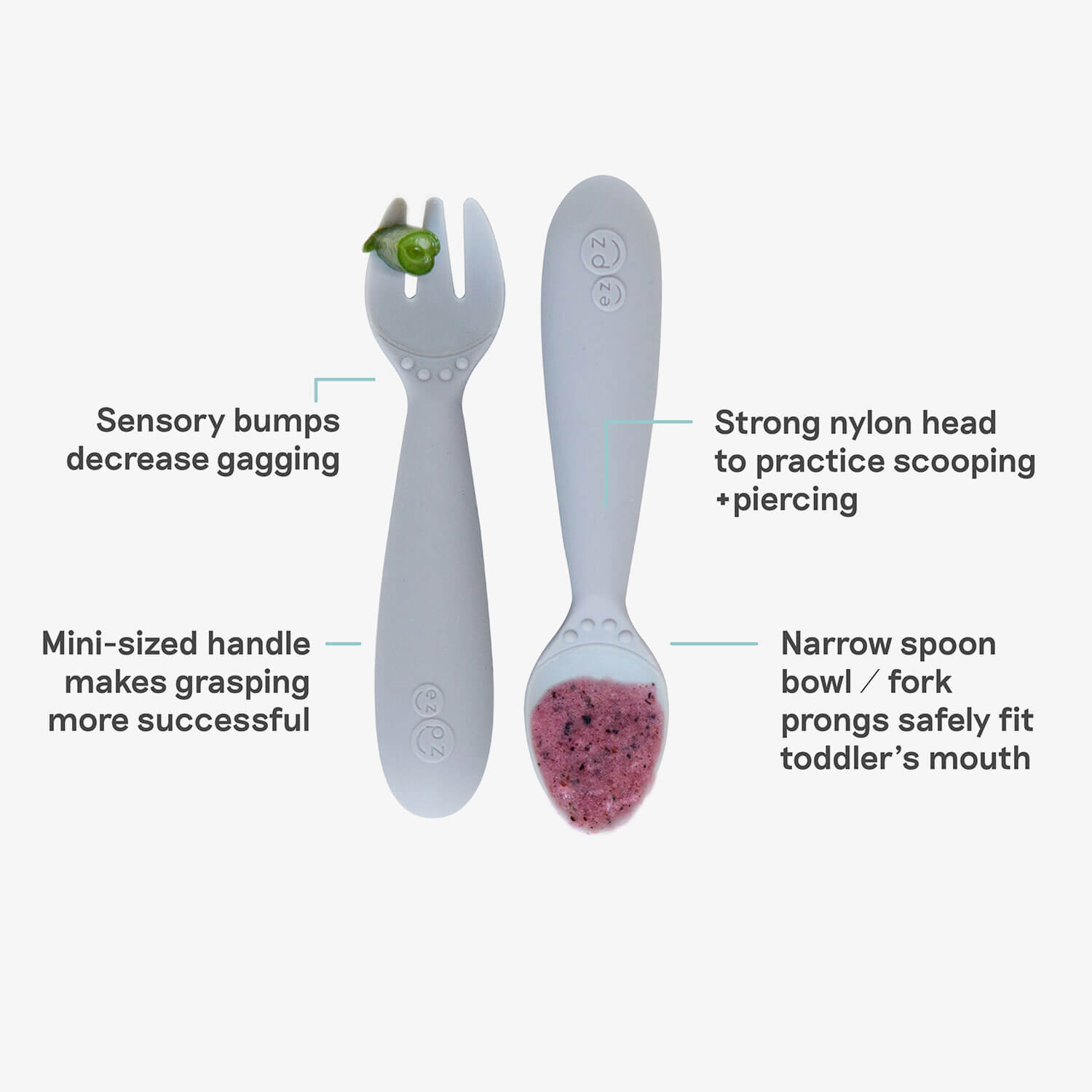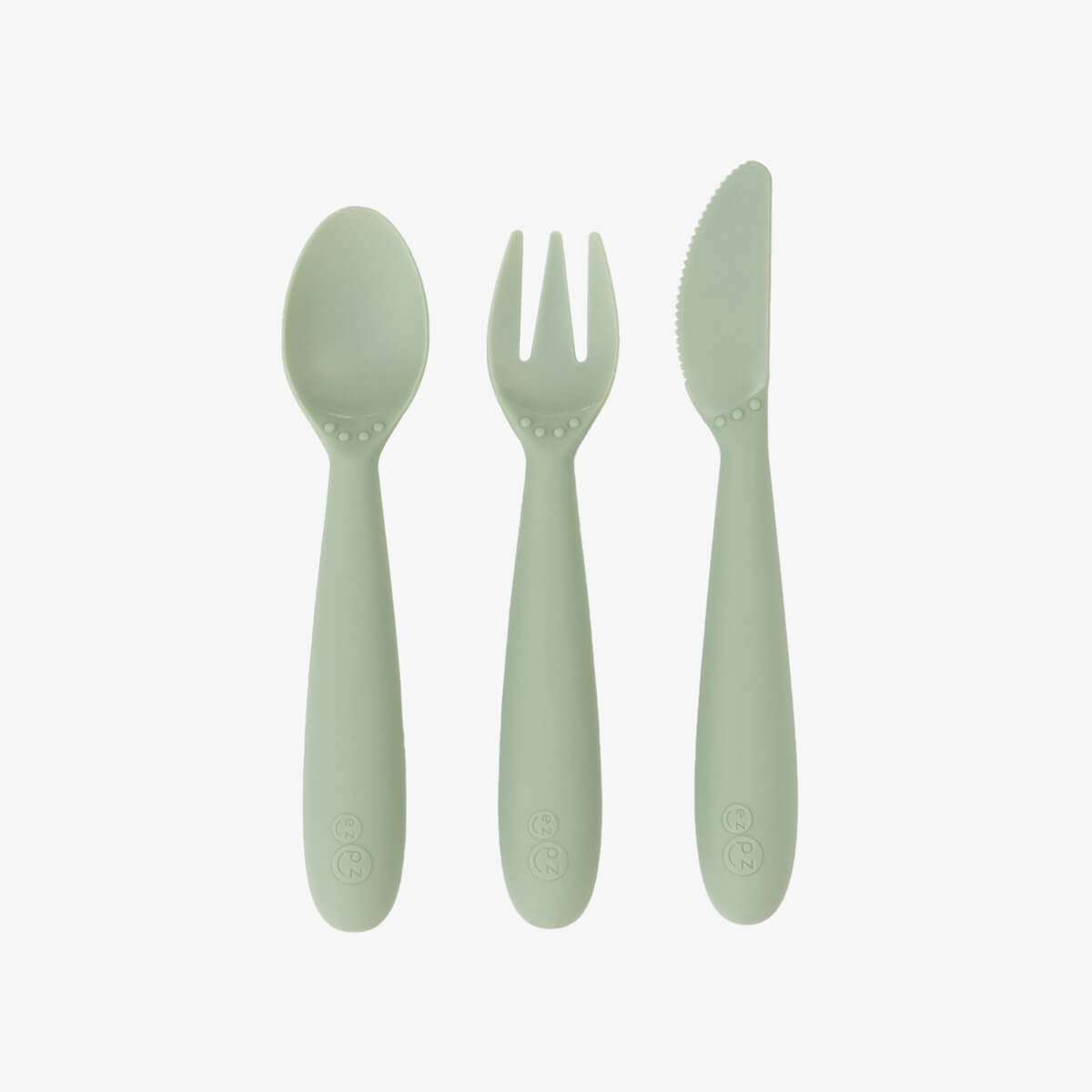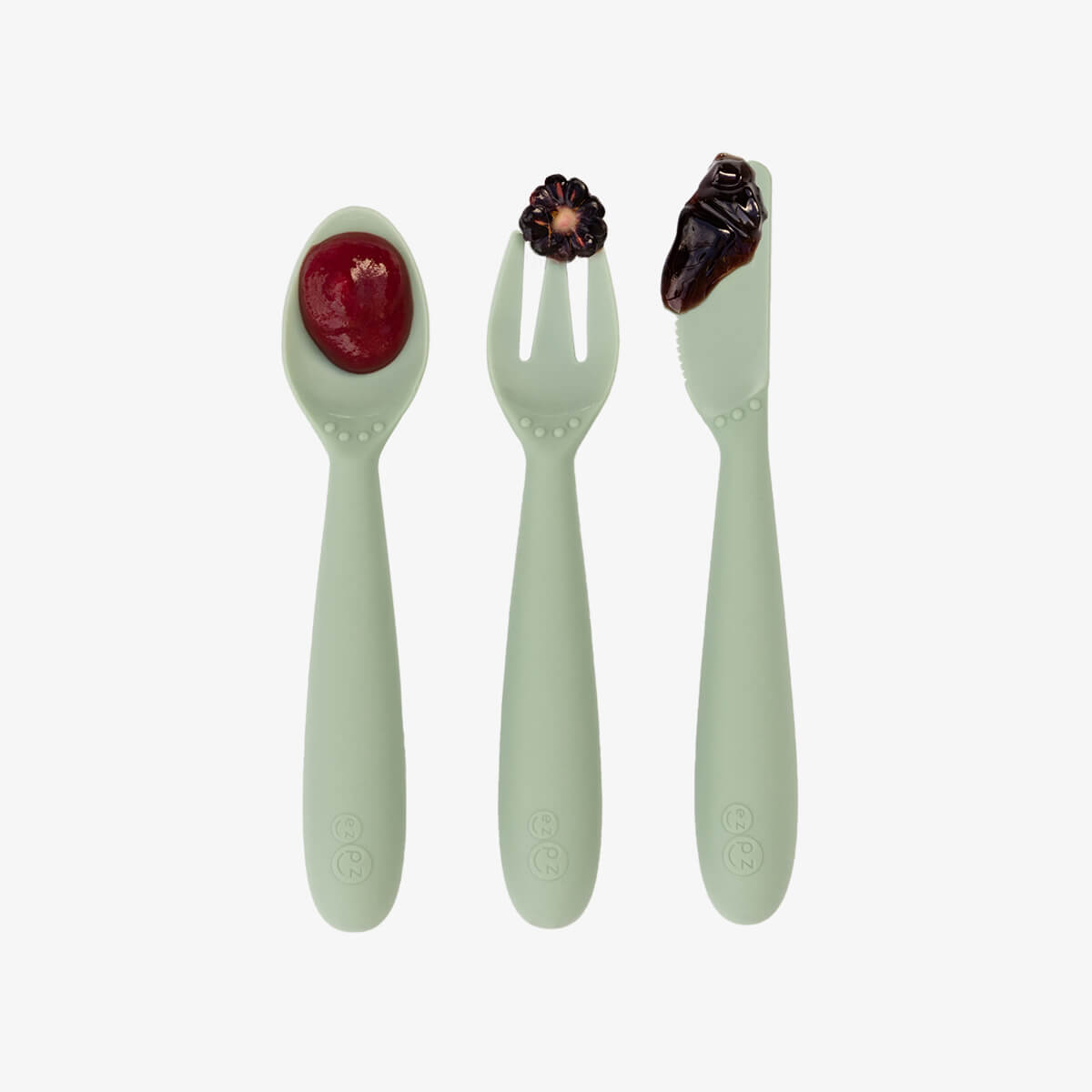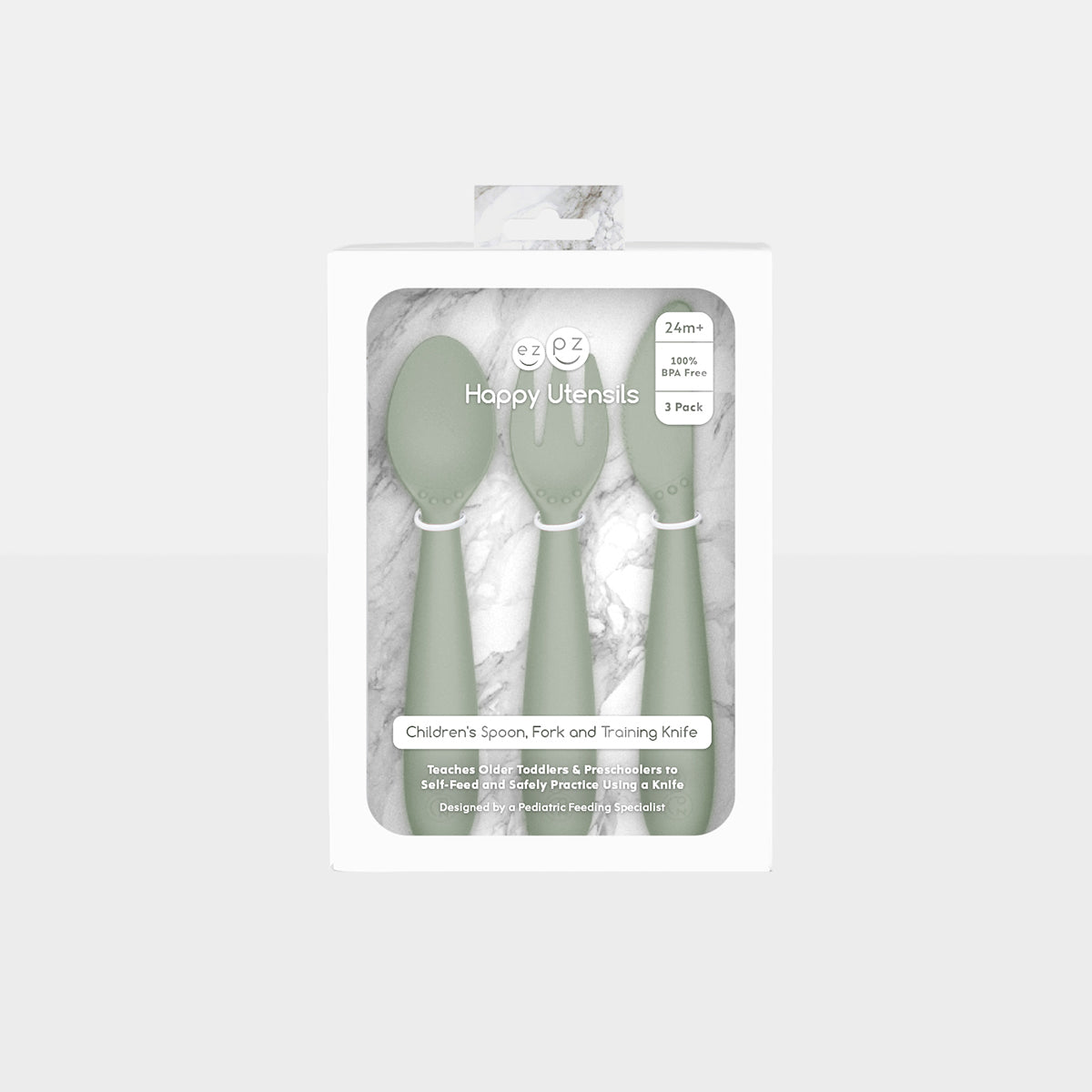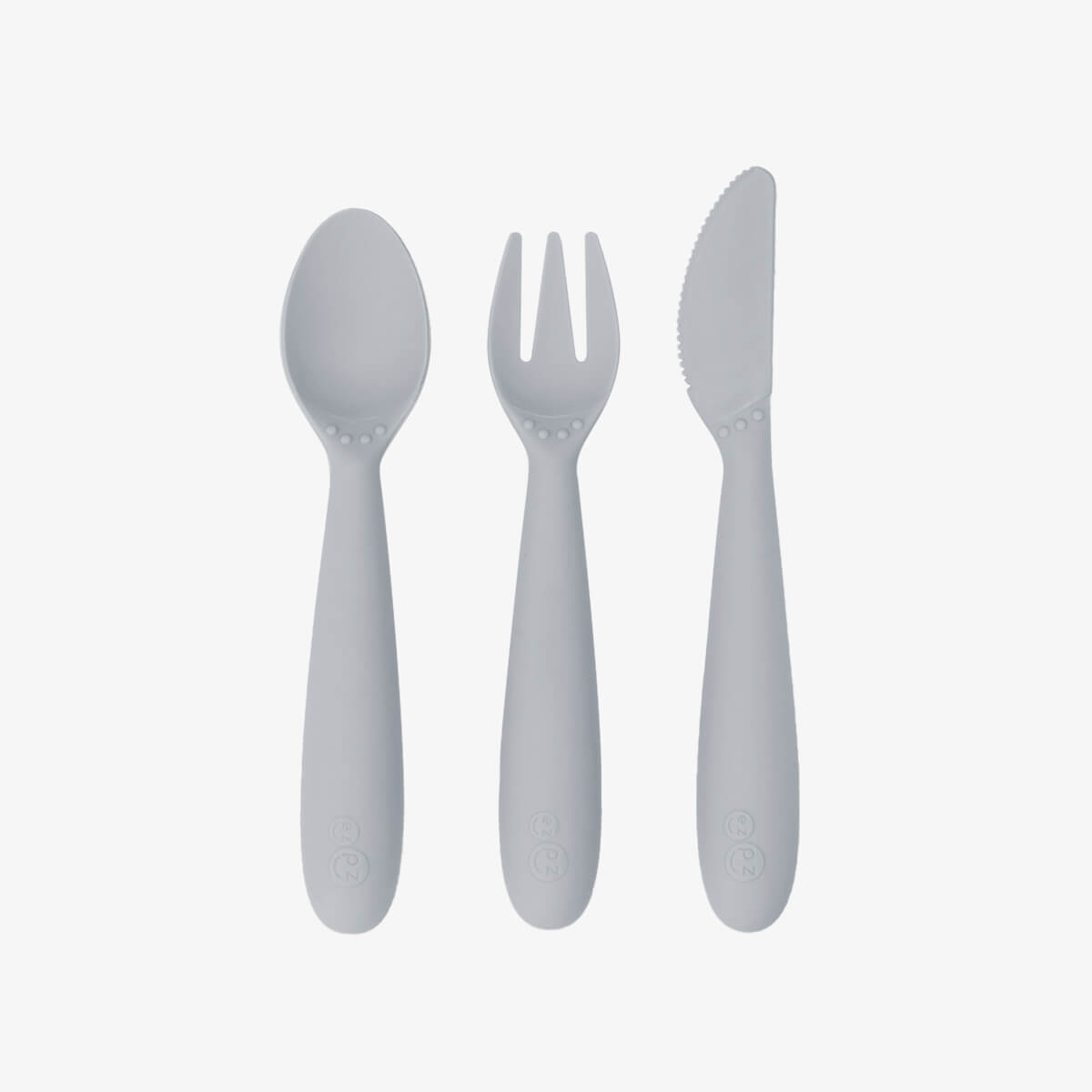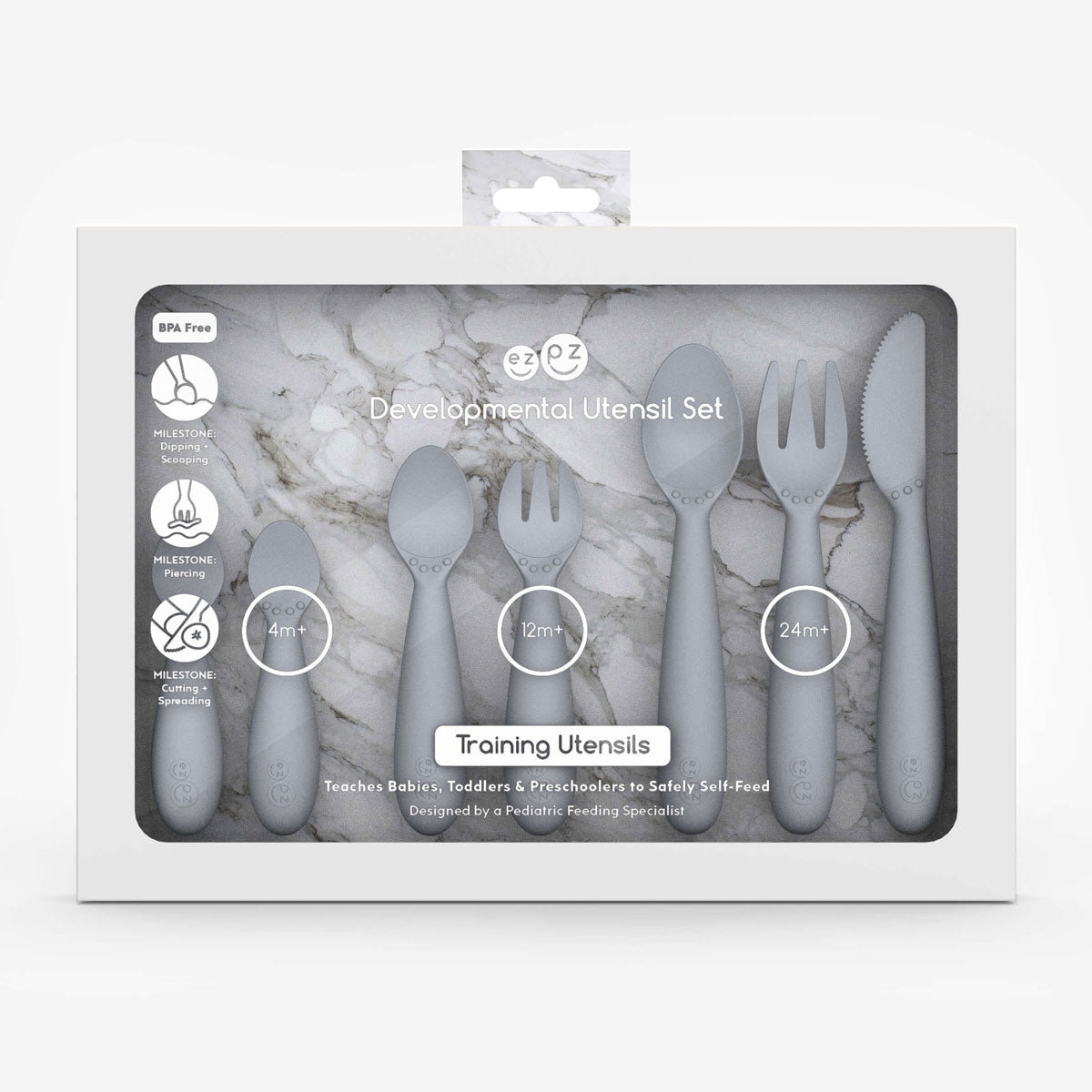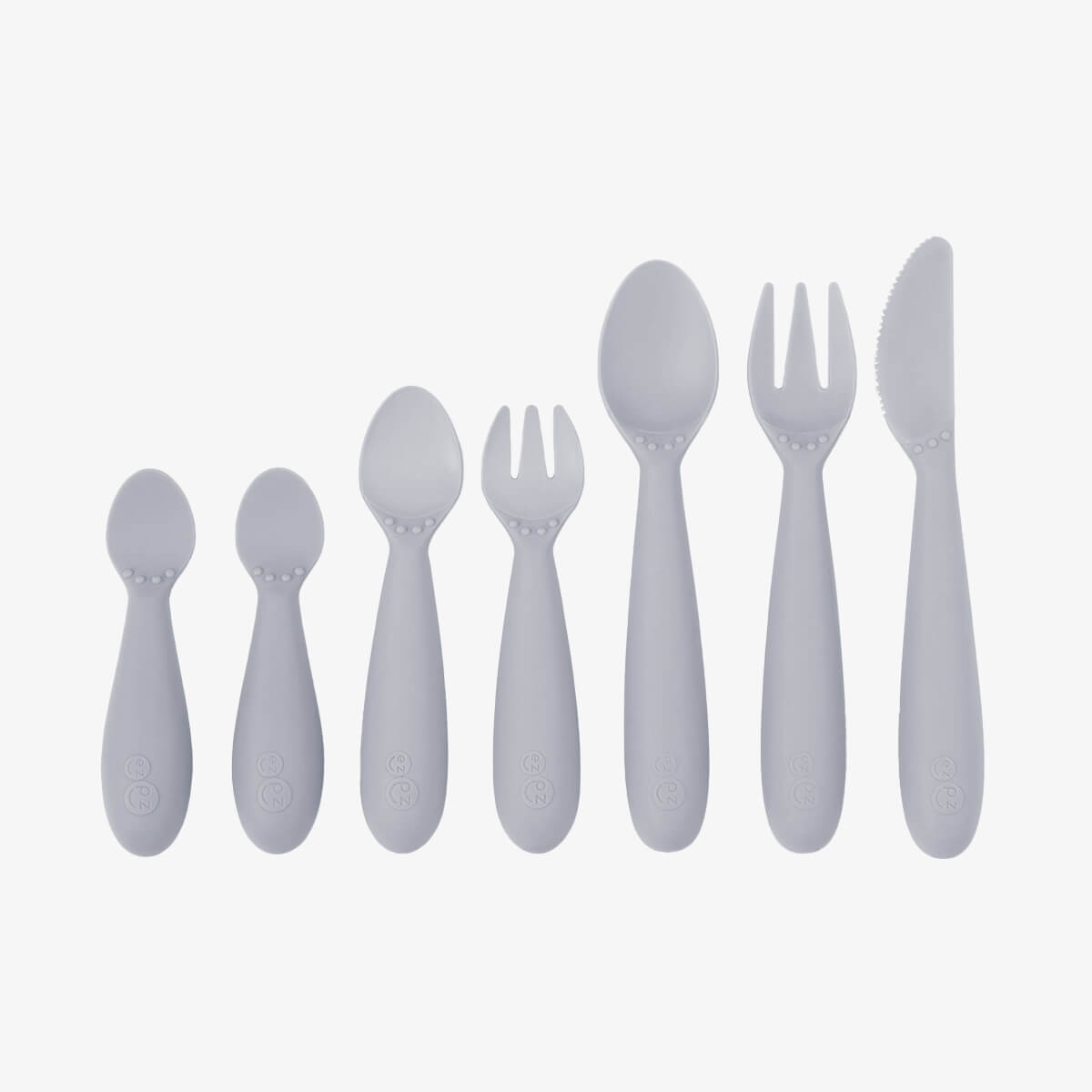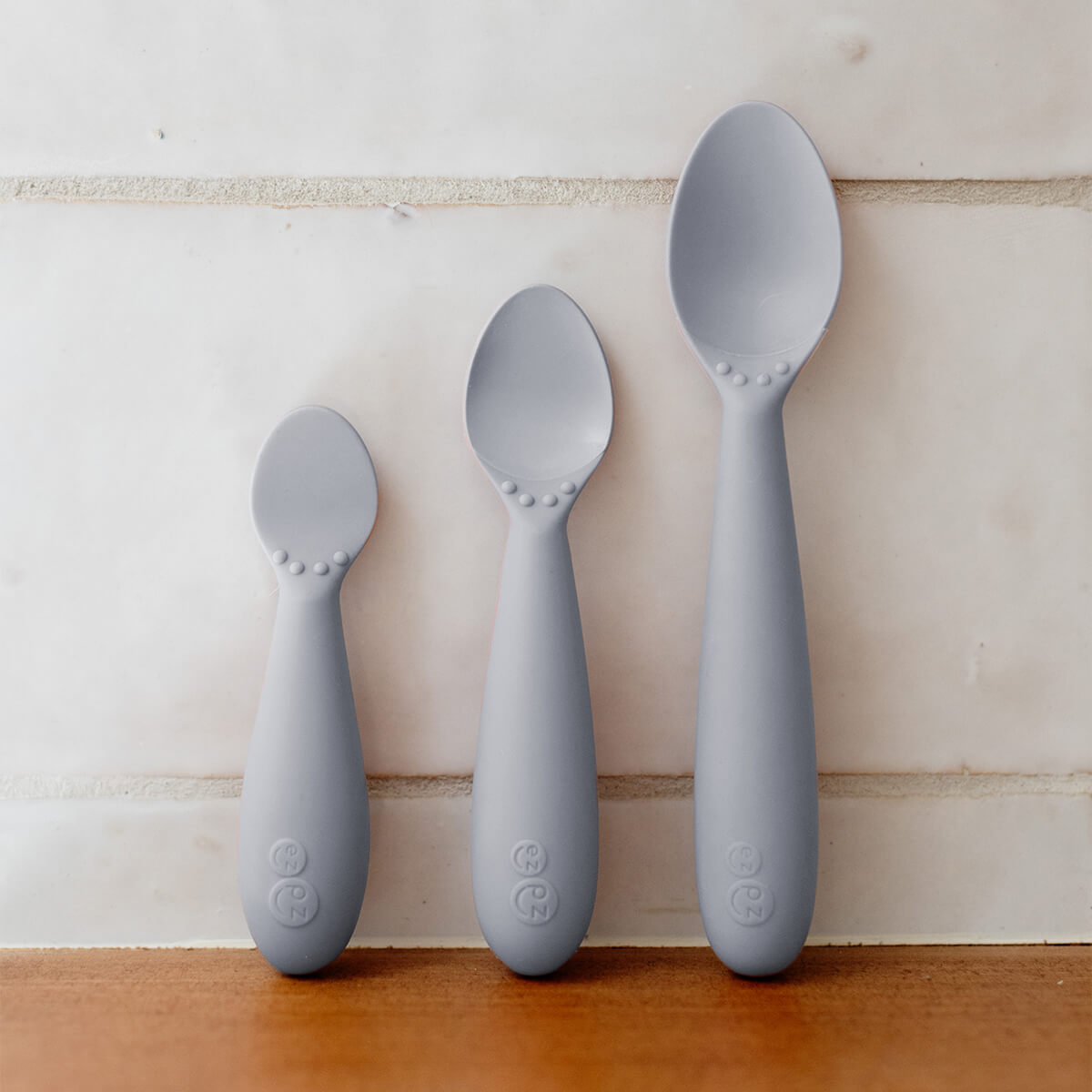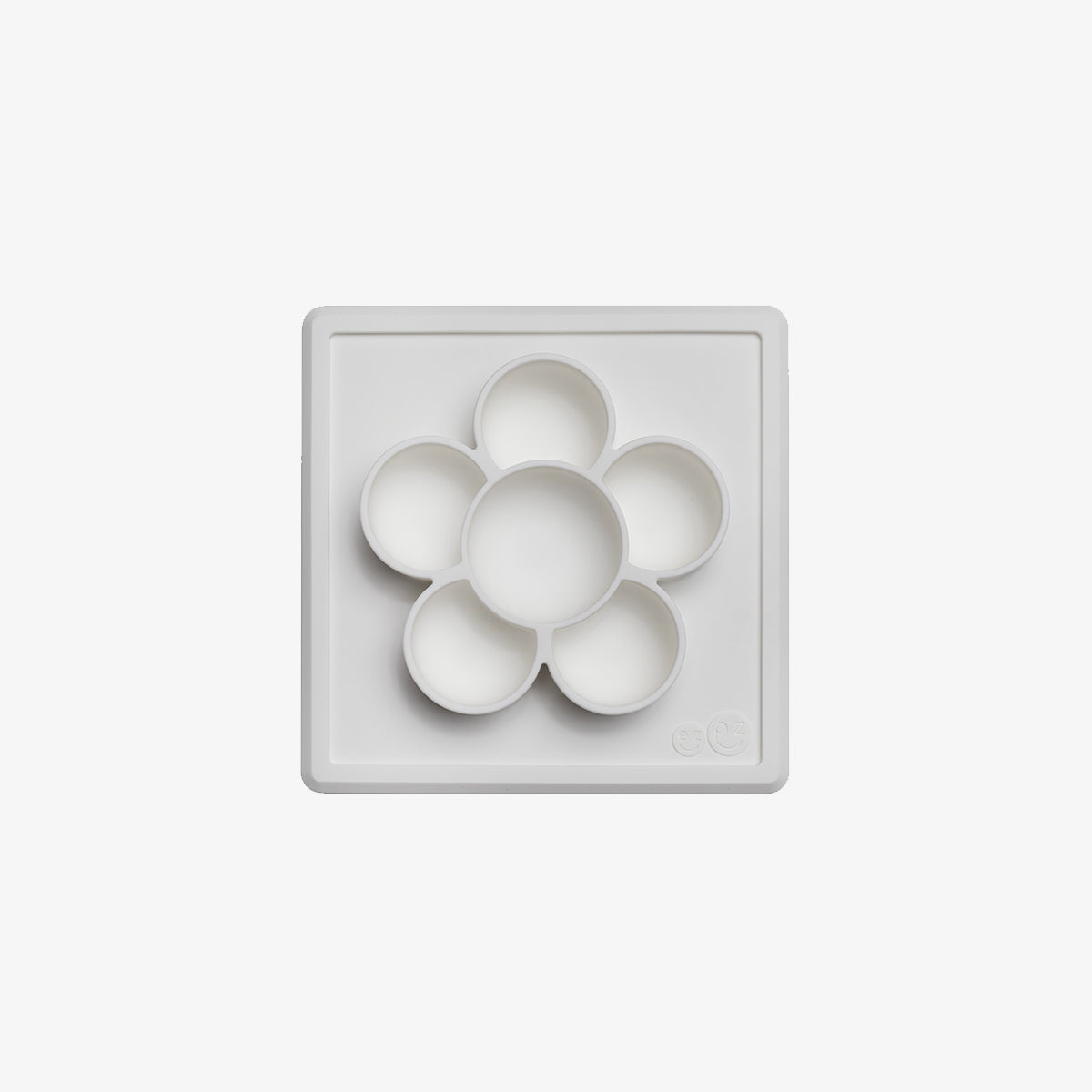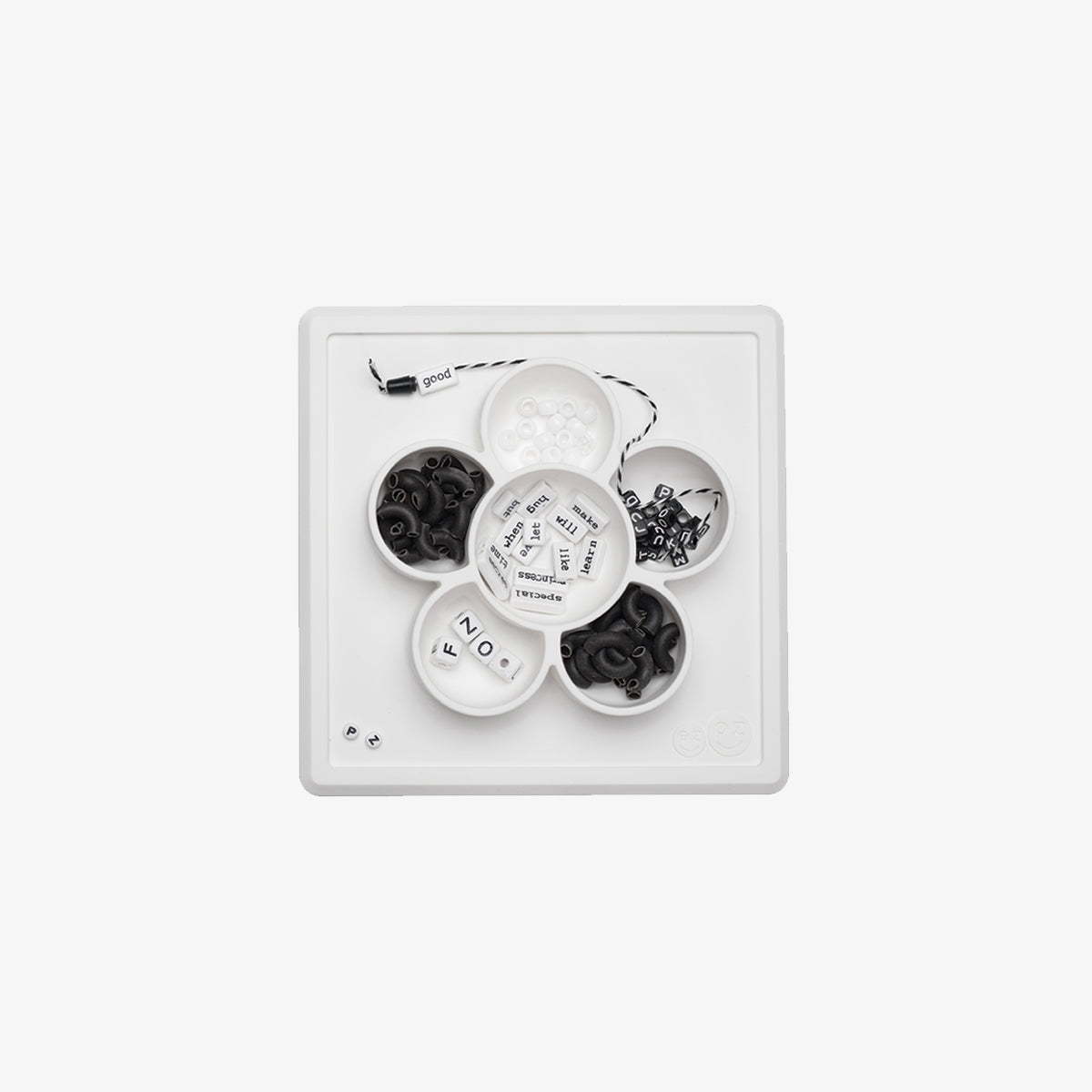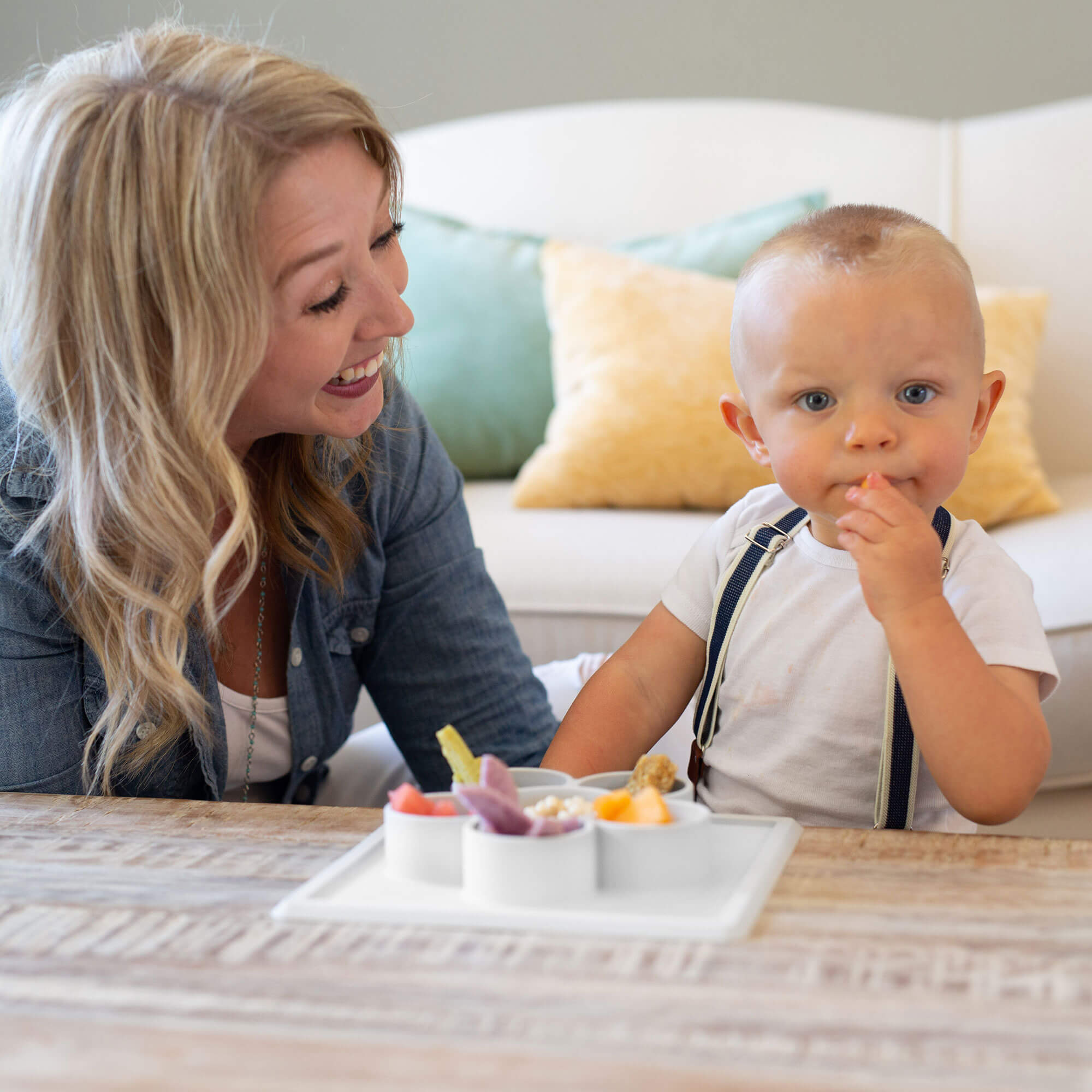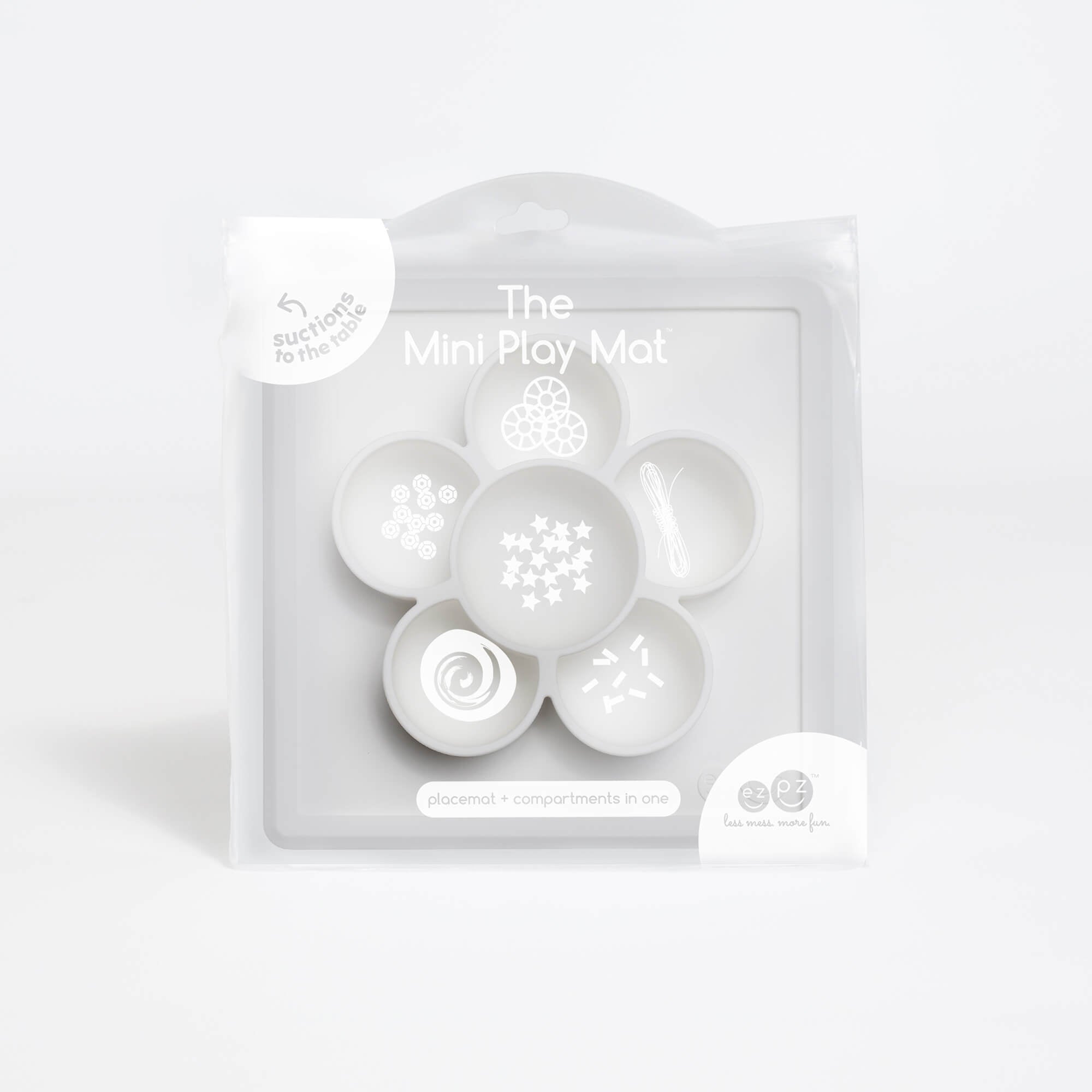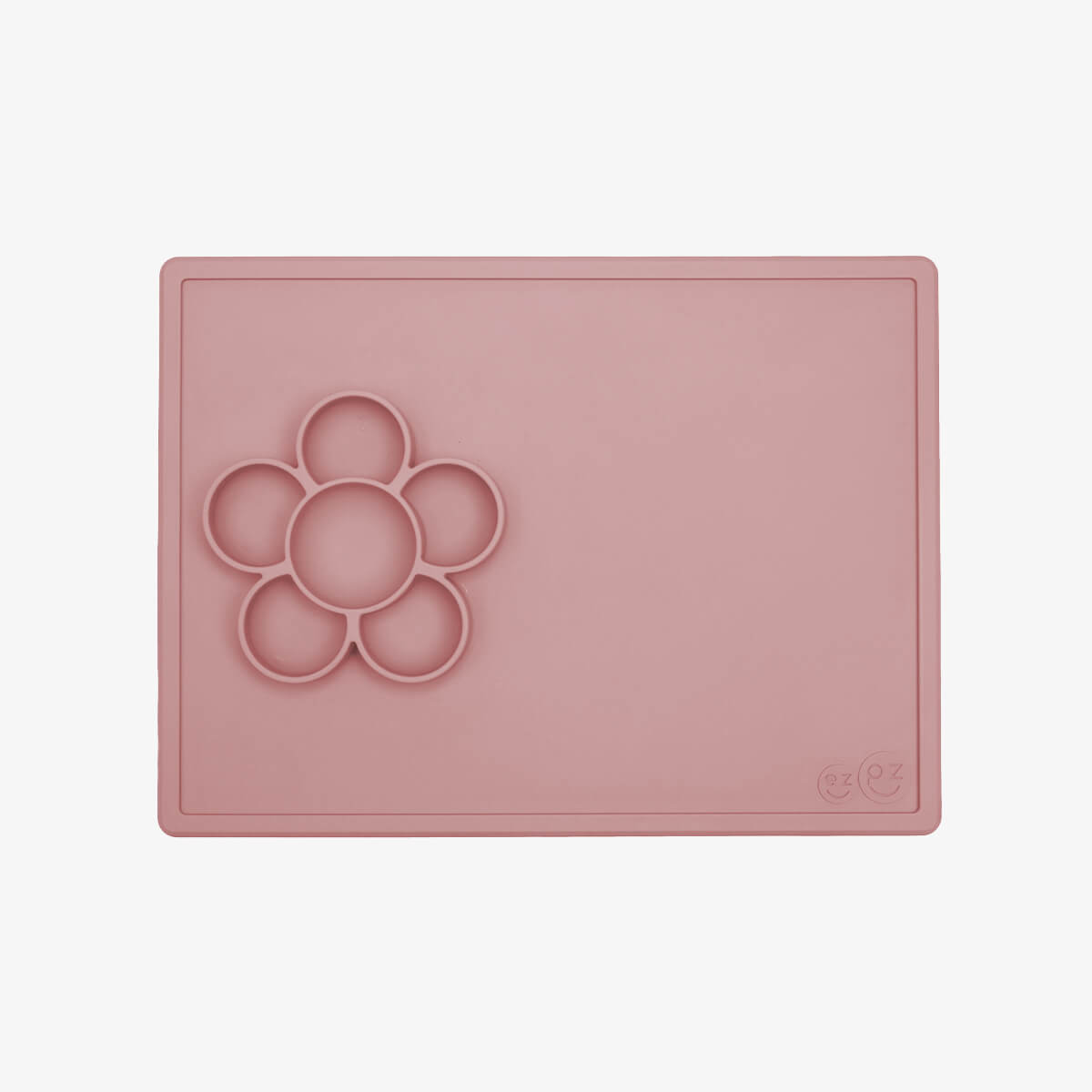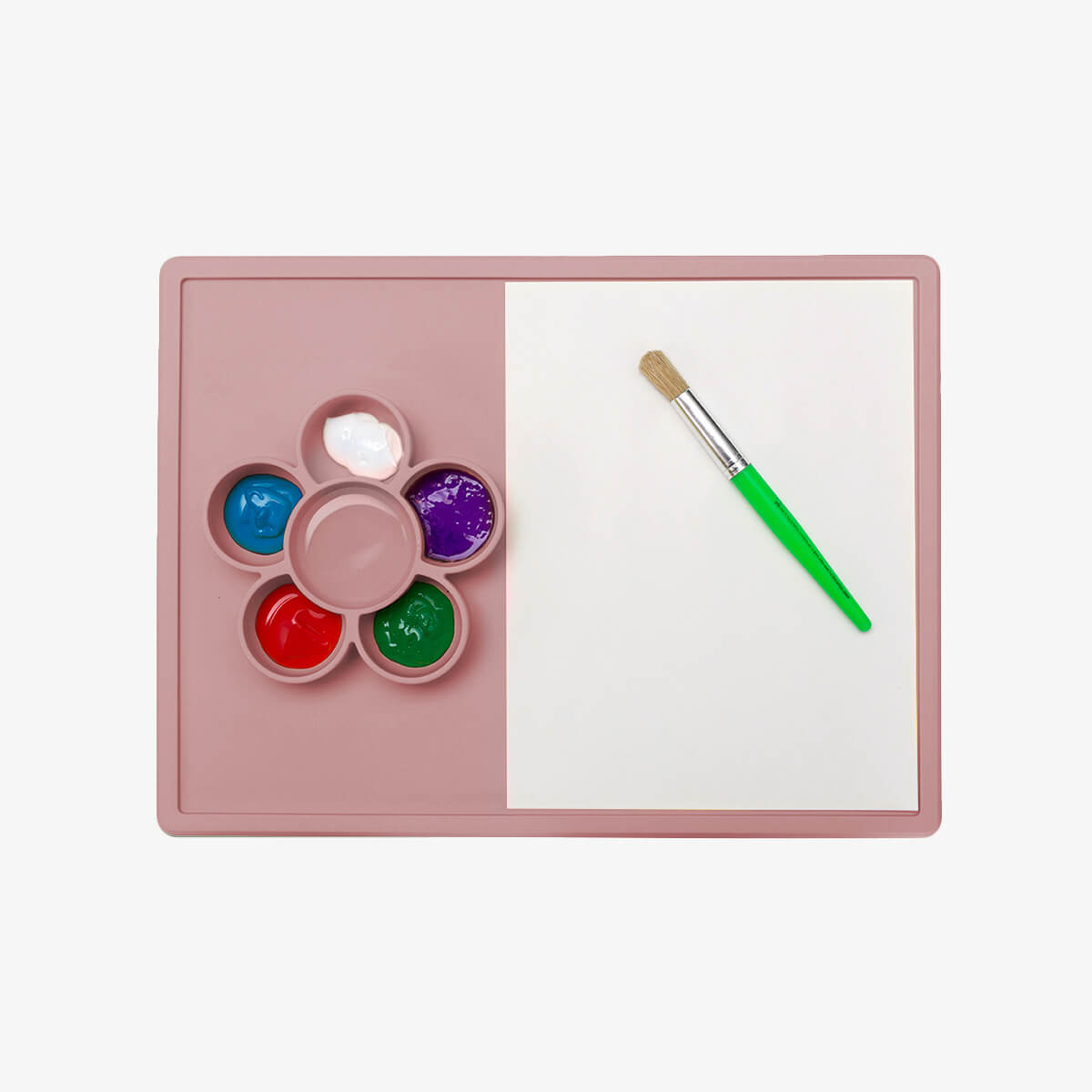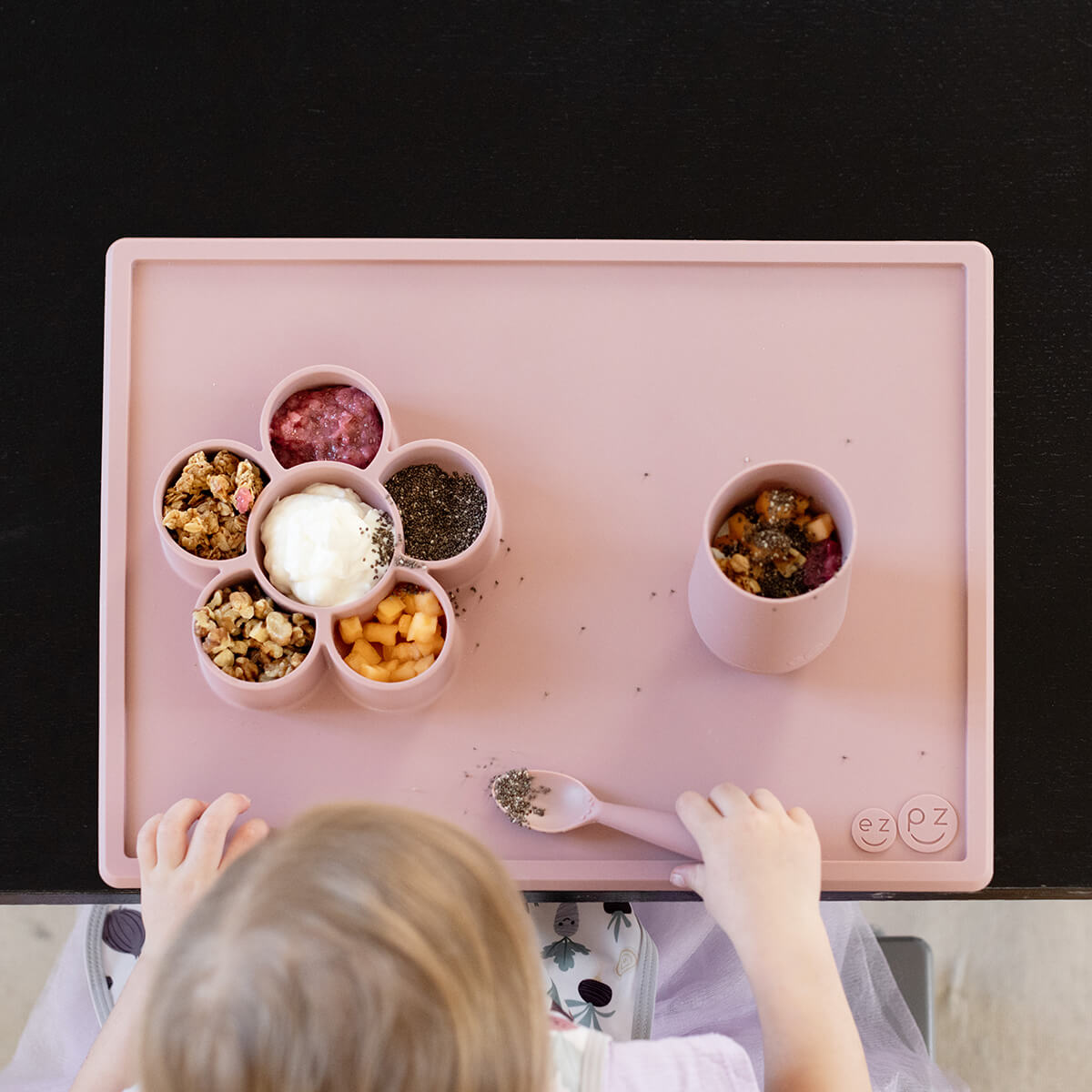Self-feeding with utensils can be a complex task for toddlers with Down syndrome. Here are a few tips for teaching utensil exploration, independence and consistency.
Teaching Exploration: The first step in teaching toddlers about utensils is to allow them to explore the utensils. Offer your child their utensils (in the highchair or booster seat) 5 minutes or so before a meal or snack. Encourage your littles to hold, play and mouth them (without any food). For children with Down syndrome, this exploration is critical in accepting the utensils from a sensory and motor standpoint (with food) at mealtime.
- Expert Tip: It is important to remember that, developmentally, toddlers may still need to explore food with their hands (even as they are simultaneously exploring utensils). Finger feeding continues to be a critical sequencing stage to independent utensil use. At first they may squish or scoop food with their fingers. It may seem like they are playing with their food, but don't stop them from doing this! They are imitating how a fork pierces the food or how a spoon scoops. Exploring these movements with their fingers encourages them to try these same movements with utensils.
Teaching Mealtime Independence: Teaching toddlers to learn how to use utensils can be challenging. But if you have utensils specifically designed for your toddler’s age (12 - 36 months), size (hand and mouth dimensions) and stage (scooping with a spoon or cutting with a knife) your child can achieve mealtime independence.
- Expert Tips for Toddlers 12-24 mos: Some toddlers with Down syndrome have difficulties with the fine motor skills needed to eat independently due to low tone in their core, hands, wrists or elbows. The ezpz Mini Utensils were designed with a silicone handle and sensory bumps to provide tactile support. This support can help children with low tone become independent with their utensils and makes it easier to obtain the milestones of scooping with a spoon and piercing with a fork.
- Expert Tips for Toddlers 24+ mos: Around two years of age, you can start to advance your child’s utensils skills by introducing a training knife. For safety, I like to make sure my tots with Down syndrome are successful with their spoon and fork skills before exploring a knife for spreading purees and cutting soft foods. The ezpz Happy Utensils include a larger spoon, a fork with longer and sharper tines and a safe training knife.
Teaching Consistency: If you model utensil use and provide your toddler with a spoon, fork and training knife consistently, they will be more willing to use them. And don’t get stuck with utensil exposure only at mealtime - try using them at snack time and playtime too!
- Expert Mealtime Tip: If your child is particularly hungry during mealtime, pre-load their fork (or spoon) at the beginning of the meal to help model piercing or scooping for them. This will encourage them to continue to use the utensil to satiate themself throughout the meal.
- Expert Snack Time Tip: For snack time, I use the Play Mat or Mini Play Mat so that my toddlers with Down syndrome can practice holding the fork / spoon to pierce / scoop a food six times (the flower compartment has six spaces to place food in). This repetitive practice makes motor planning playful and fun!
- Expert Playtime Tip: You can even teach utensil use during play! Here are a few ideas to teach both cutting and spreading with a knife.
- Get creative by encouraging your child to cut Play-Doh or kinetic sand with a training knife.
- Make a fun acrylic painting by spreading acrylic paint onto a small canvas.
I hope these ideas inspire you to practice utensil use with your toddler with Down syndrome. If you try one of these tips, please tag us in your pics with the hashtag #ezpzfun #DownSyndromeAwareness.


